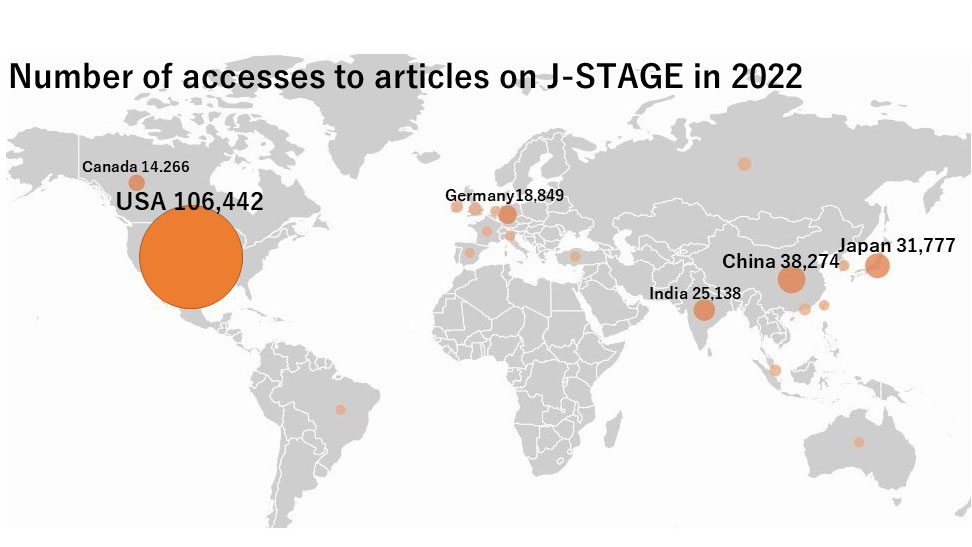Aims and Scope
Annals of Thoracic and Cardiovascular Surgery is an international, peer-reviewed, open access journal that publishes significant and novel contributions in thoracic surgery. The journal, which is supported by the Japanese Association for Coronary Artery Surgery, aims to facilitate the communication and progress of thoracic surgery worldwide.
Welcome Essay from the Editor in Chief
Annals of Thoracic and Cardiovascular Surgery was first published in 1995 and is now in its 28th year of publication.
This journal is collated into issues six times a year and covers the fields of cardiovascular, respiratory, and esophageal surgery.
Instructions to Authors
Annals of Thoracic and Cardiovascular Surgery supplies comprehensive and clear Instructions to Authors, which offer guidance on article types and format, journal policies, and how to submit manuscripts.
The journal welcomes submissions from around the world.
Featured ArticlesView more articles >
Original ArticleJune 20, 2022
Purpose: To compare open versus endovascular left subclavian artery debranching for thoracic endovascular aortic repair of thoracic aortic pathologies. Methods: This is a retrospective study of patients receiving left subclavian artery debranching in our institution from October 2009 to January 2020. The primary outcome was freedom from aortic reintervention. Secondary outcomes were type I endoleaks, left subclavian artery (LSA) debranching failure, stroke, technical or clinical success, procedure-related reintervention, as well as 30-day or overall all-cause and aorta-related mortality.
Review ArticleApril 20, 2022
Purpose: The impact of chronic kidney disease (CKD) on the prognosis of transcatheter aortic valve replacement (TAVR) remains unclear. The purpose of this meta-analysis was to assess the impact of CKD and different stages of CKD on prognosis in patients undergoing TAVR. Methods: As of June 2020, we performed a comprehensive literature search on relevant studies using PubMed, Embase, Cochrane Library, and Web of Science. Subsequently, we pooled the risk ratio (RR) of individual studies via random effects to analyze heterogeneity, quality assessment, and publication bias.
Original ArticleApril 20, 2022
Purpose: Immune checkpoint inhibitors (ICIs) have been successfully used in many clinical trials related to immunotherapy. This study aimed to investigate the clinical efficacy of ICIs and prognostic factors in patients with resectable non-small cell lung cancer (NSCLC) following neoadjuvant therapy in the real world. Methods: A total of 170 consecutive patients were finally selected and divided into two groups: the preoperative chemotherapy group (n = 91) and the chemo-immunotherapy group (n = 79). The primary endpoint was disease-free survival (DFS). The secondary endpoints were pathological response, clinical response, pathological nodal disease, and ability of multivariate Cox regression analysis to predict survival. Survival was estimated using Kaplan–Meier method and compared using log-rank test.
Original ArticleJune 20, 2022
Hemoadsorption of Rivaroxaban and Ticagrelor during Acute Type A Aortic Dissection Operations
Objective: To analyze the results of hemoadsorption in patients with cardiac surgery to thoracic aortic surgery, who had been loaded beforehand with either Factor Xa inhibitor rivaroxaban or P2Y12 receptor antagonist ticagrelor. Methods: We investigated 21 of 171 consecutive patients (median age 71 [interquartile range 62, 76] years) who underwent emergency cardiac operations for acute type A aortic dissection between 2014 and 2020. These patients were pretreated with rivaroxaban (n = 9) or ticagrelor (n = 12). In ten of 21 cases (since 2017), we installed a hemoadsorber into the heart–lung machine and compared the results to eleven patients done without hemoadsorber before that time.
About the Society
This journal is an associate journal of the Japanese Association for Coronary Artery Surgery.
The Japanese Society of Coronary Artery Surgery was established in 1996 and has a history of more than 20 years. It currently has about 800 members, making it one of the few societies in the world that specialize in coronary artery surgery.
This society contributes to the sustainable development of thoracic surgery by providing a platform for researchers in coronary surgery to disseminate their research results.
Contact details
Editorial Office
Annals of Thoracic and Cardiovascular Surgery
Email: atcs-edit[at]bunken.co.jp (Please replace [at] with @)


